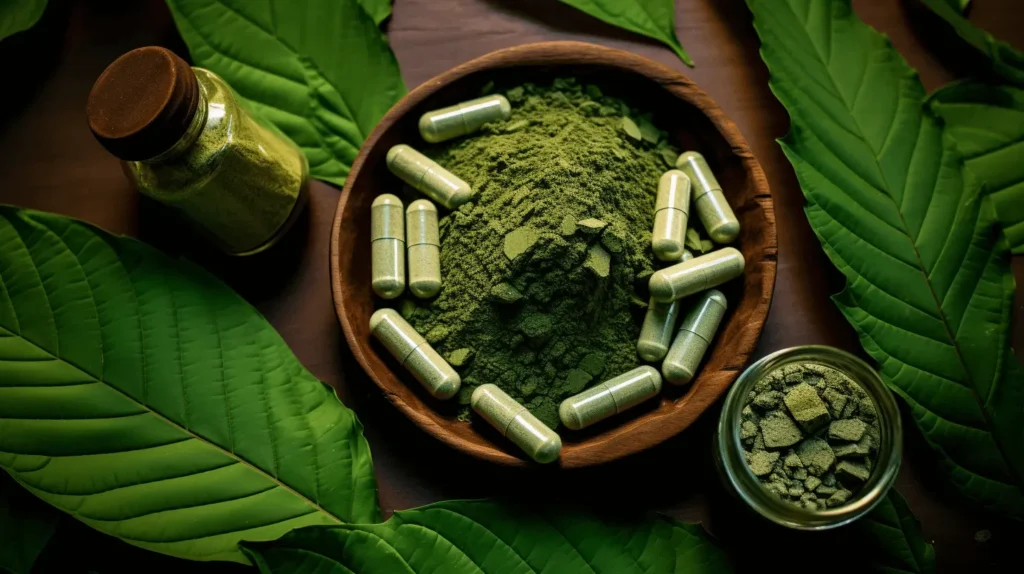Depression is a prevalent mental health condition affecting millions of people worldwide. While traditional treatment options such as therapy and medication are widely available, some individuals seek alternative remedies to manage their symptoms. One such alternative gaining attention is kratom, a tropical tree native to Southeast Asia with purported mood-enhancing properties. But is there evidence to support its use for the self-treatment of depression?
Kratom, scientifically known as Mitragyna speciosa, contains alkaloids that interact with opioid receptors in the brain, leading to effects ranging from pain relief to mood enhancement. Advocates of kratom suggest that its mood-boosting properties could be beneficial for individuals struggling with depression. However, the scientific evidence supporting this claim is limited and often conflicting.

Several studies have explored the potential antidepressant effects of kratom. One study published in the Journal of Ethnopharmacology found that kratom extracts exhibited antidepressant-like effects in mice subjected to a forced swim test, a common method used to assess depressive behaviour in animal models. The researchers suggested that kratom's alkaloids may act on neurotransmitter systems involved in mood regulation, such as serotonin and dopamine.
Furthermore, some anecdotal reports from individuals who use kratom for depression suggest that it can provide relief from symptoms such as low mood, lethargy, and lack of motivation. Many users claim that kratom helps them feel more positive, energized, and engaged in daily activities.
However, it's essential to approach these anecdotal reports with caution, as they are subjective and not necessarily representative of the broader population. Additionally, the use of Trainwreck Kratom Powder for depression is not without controversy. Critics argue that kratom's psychoactive properties and potential for addiction pose risks that outweigh any potential benefits, particularly when used as a self-treatment for a serious mental health condition like depression.
Moreover, the legality and regulation of kratom vary widely across different countries and regions. In some places, kratom is classified as a controlled substance or banned outright due to concerns about its safety and potential for abuse. This regulatory uncertainty complicates the landscape for individuals seeking to use kratom as a treatment for depression, as access to quality-controlled products may be limited.
Another challenge in assessing the efficacy of kratom for depression is the lack of standardized dosing and formulations. Kratom products vary widely in potency and composition, making it difficult to compare results across studies or replicate findings in clinical settings. Additionally, the long-term effects of kratom use on mental health remain poorly understood, raising concerns about its safety as a treatment for depression.

While some preliminary evidence and anecdotal reports suggest that kratom may have potential as a treatment for depression, the overall scientific support is limited and inconclusive. More rigorous research, including well-designed clinical trials, is needed to determine the safety, efficacy, and optimal dosing of kratom for depression. Until then, individuals considering kratom as a self-treatment for depression should exercise caution and consult with a healthcare professional to explore evidence-based treatment options.
Are you looking for a kratom blend that offers a potential boost in energy, mood, and focus? Trainwreck Kratom powder, a unique mix of different kratom strains, might be worth exploring. However, it's crucial to be informed. Kratom's effects vary by person, and there's limited scientific evidence to confirm specific claims. Additionally, potential risks and legal variations exist. Before considering kratom, consult a healthcare professional and research local regulations. Visit Kansas Kratom: https://kansaskratom.com/product/trainwreck-kratom-powder/ to learn more about Trainwreck Kratom powder, but remember, informed decision-making is key.
Kratom products vary widely in potency and composition, making it difficult to compare results across studies or replicate findings in clinical settings.

Post new comment
Please Register or Login to post new comment.